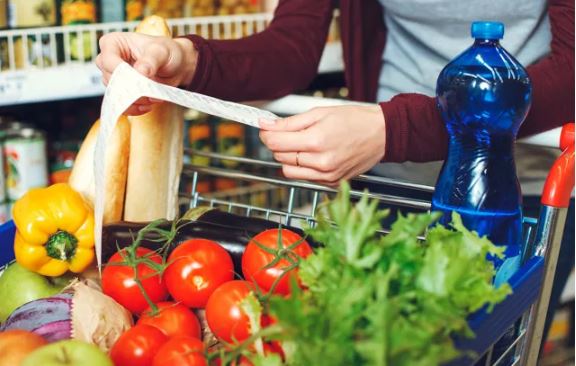Lifestyle
10 must-have items in your shopping list during Ramadan

With Ramadan right around the corner, it’s time to start thinking about what you can do to maintain your health.
Food has a direct impact on how you feel while fasting. Choosing the right food for your sahur or iftar can keep you hydrated energized, and in turn, much happier throughout the day.
In comparison, choosing fried food and/ or highly processed food can make you feel thirsty, lethargic, and even cranky.
In order to prepare for a more holistic Ramadan, we’ve compiled a shopping guide with the essentials.
1. Dates
The month of Ramadan is synonymous with consuming dates. Why? Although dates may be small in size, they pack a punch. Besides being a good option to satisfy your sweet tooth, dates are a good source of vitamins, minerals, fiber, sugar, and energy. Consuming dates during sahur is a great way to stay energized throughout the day!
2. Low-Sugar fruits
Fruits are universally known as healthy due to being high in fiber and enzymes. Not only that, but fruits can prevent constipation and help keep you hydrated. Just make sure to avoid fruits high in fructose, such as mango, durian, lychee, grapes, etc. Papaya, watermelon, dragon fruit, pineapples, berries, and coconut are a few examples of good low-sugar fruits options.
3. Nuts and Seeds
Nuts and seeds contain a variety of healthy nutrients that can positively affect your brain, your heart, and even your waistline. Just one ounce of nuts a day can diminish inflammation by providing your body with immune-boosting minerals.
If you’re bored of peanuts or almonds, then switch it up by opting for cashews, macadamias, pistachios, pecans, pumpkin seeds, sunflower seeds.
4. Grain
Grains are an Asian staple, but overconsumption of white rice can actually lead to Type 2 Diabetes. Switch to brown rice as it’s a whole grain with a low glycaemic index (GI value = 55) – this means your blood sugar levels, and energy levels, won’t fluctuate while fasting. Another option would be oats or barley, which have almost identical components; such as being rich in B6, folate, potassium, and zinc.
5. Root vegetables
Did you know that root vegetables are some of the most nutrient-dense vegetables in the world? This is because root vegetables can directly absorb large amounts of nutrients from the soil. While each root vegetable contains its own set of health benefits, a high concentration of antioxidants and iron are overlapping benefits. They are filled with slow-burning carbohydrates, too, meaning you feel full quicker and for longer. Carrot, radish, potato, yam, and ginger are a few examples of root vegetables to get you started.
6. Leafy greens
Yes, Ramadan is a reason to indulge, but don’t stop eating your greens just because you’re fasting. If you need convincing, then know that leafy greens are actually calming on your stomach after a long day of fasting.
Moreover, leafy greens are packed with fiber, so make sure to pick wisely as too much fiber can be hard to digest. Some recommendations: pre-packed salads, spinach, bittergourd, and broccoli.
7. Soy
Most plants lack one or two essential amino acids, but soy is the only plant source that contains all nine essential amino acids. In addition to that, it’s a source of protein, low in saturated fat, and can help lower cholesterol levels. Bonus: eating fermented soy products like tempeh or natto can boost micro gut flora.
8. Fish
Consuming fish has been shown to boost brain health, fight heart disease, and more. Deep sea fish, in particular, is rich in Omega-3 fatty acids and excellent for the brain and the heart. If you plan to continue exercising while fasting, then don’t forget about your protein (and if you’re vegan, buy soy). Salmon, trout, cod, and sardines are a few examples of deep-sea fish.
9. Good fats
Eating an appropriate amount of good fats during Ramadan is important, as fatty acid is one of the essential nutrients in building our body’s cell structure. Plus, fatty acid nourishes the skin, meaning your skin won’t feel or look dry. Coconut oil can help relieve constipation. Ingesting one tablespoon a day might come in handy to those who get constipated, because of the change in eating habits during Ramadan.
10. Sea salt
Staying hydrated is a major concern amongst those practicing the month-long fast. It might not seem like a big deal, but choosing the right salt can make a huge difference in how hydrated you are during the day. Regular table salt (sodium chloride) is heavily processed and almost drained of all nutrients except sodium – and too much sodium means you get dehydrated easily. Sea salt, however, is notably different. It’s made up of 82 essential trace nutrients from the minerals present in seawater. One of the great things about having a variety of minerals is that it helps in maintaining a healthy electrolyte balance in the body, which is necessary for maintaining optimal body function. Himalayan Salt or Celtic Sea Salt are two of great alternatives










